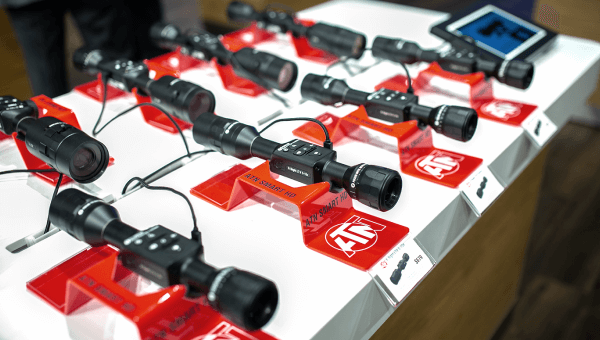25 Hunters Share Their Best Hunting Tips
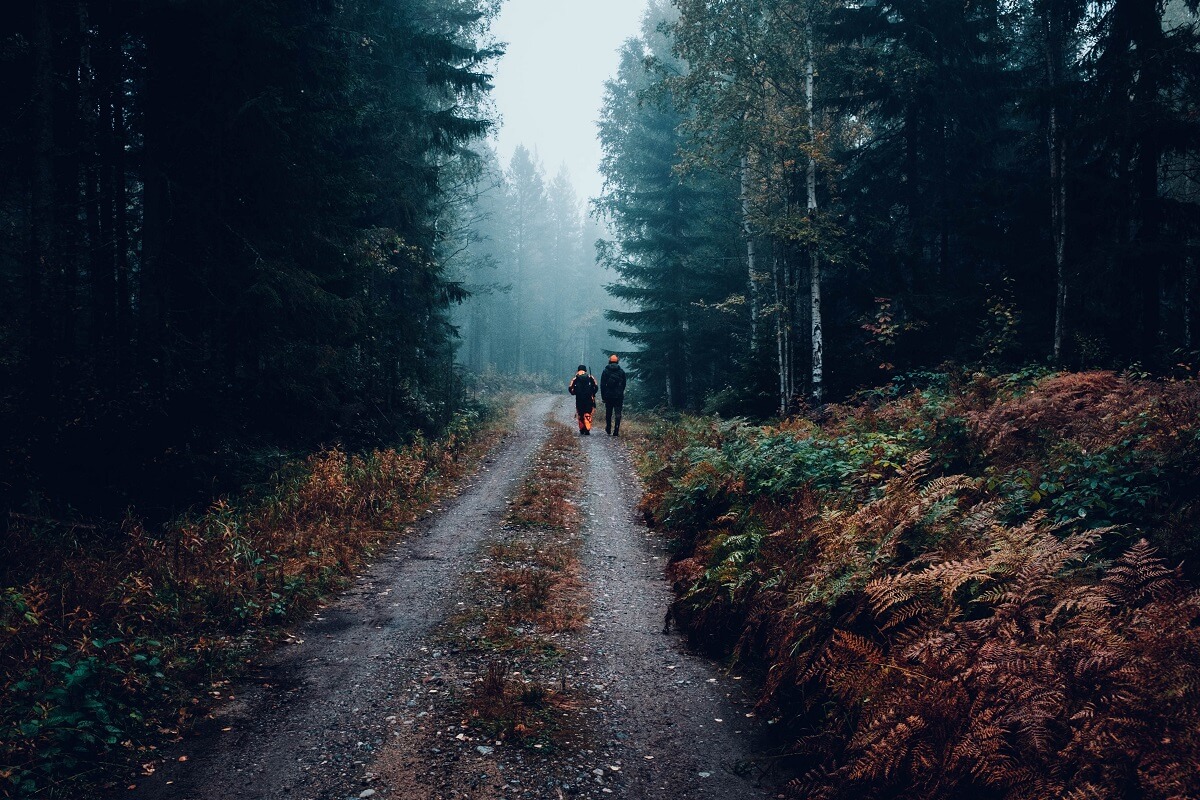
Hunting is one of the oldest sports. Before it became a sport it was one of the means through which a man could provide food for his family.
Nowadays most people hunt for recreational purposes. For hunters, hunting is an exciting activity through which they can bond, connect with nature and live a healthy lifestyle thanks to all the physical effort it involves.
If you are interested in learning how to hunt but you don't know how to start, don't worry, we got you covered with our first time hunting tips.
We reached out to 25 hunters and asked them the following question:
What Are Your Best Hunting Tips for a Beginner?
Keep reading to see what they had to say on how to start hunting. We received a variety of answers that will be tremendously helpful for any new hunter and can also provide different insights even to experienced hunters with our tips for hunting blog.
John McAdams - The Big Game Hunting Blog
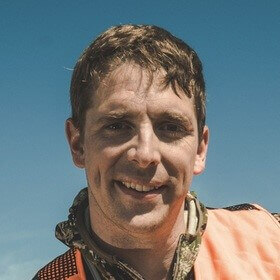
The most important piece of advice I'd give to a beginner is to prioritize what's most important to you and focus on that as you first begin.
Getting started in the hunting world can be really overwhelming and challenging with everything you need to learn, all the gear you'll need, etc. Additionally, many people are tempted to start going in all sorts of different directions.
There's nothing wrong with being interested in learning about several different types of hunting.
However, do your best to focus on one single thing as you get started. If you do that, you won't spend as much time chasing your tail and you'll probably get off to a better start.
While there is indeed often quite a bit of overlap in the skills and equipment you'll need for various types of hunting, each has a unique twist.
If you're primarily interested in deer hunting, then focus on that. Once you get comfortable there, then by all means feel free to branch out to small game, upland, and/or waterfowl hunting.
So, carefully consider what you want out most when you first get started then focus your efforts on learning about that game, the habitat, acquiring the right gear, etc.
Chad Belding - The Fowl Life
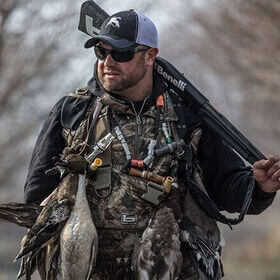
When it comes to introducing the next generation of our youth to hunting or even an adult who might be brand new to the culture and lifestyle, two things come to my mind, Comfort and Success.
I want the newbie to experience the hunt from beginning to end while staying dry, staying as warm as possible, and being comfortable from the early morning light to the end of the day.
With today's gear and technology, hunters are able to stay in the outdoors for longer periods of time while allowing themselves to stay focused on the task instead of the elements.
The next secret to getting a new hunter hooked on the game is to let that new Hunter experience some success in their first time or first couple experiences out in the field. It is hard to stay confident when success isn't an option.
Try to put them in a situation where they will have high odds of tasting success.
After these two elements are achieved, then we can start preparing the new Hunter for the many lessons they will be taught in scouting, shooting, calling wild game, butchering, processing, cooking wild game, etc.
Let them be comfortable and let them get a win under their belt, and then take them to class!
Carly Brasseux - Miss Pursuit
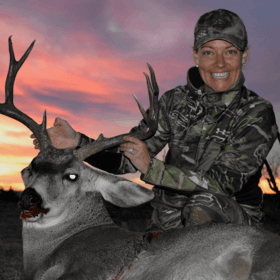
A new hunter needs to understand their why. A hunter believes in the conservation of our land and wildlife. We know land has a carry capacity and wildlife will truly thrive if their numbers are in balance.
We also know that the meat we take will be used to feed our families for months.
Why go to the grocery store when you can harvest your own meat? Knowing why we hunt is the foundation for any good hunter.
Another tip for a new hunter? Know the basics. Learn fundamental terminology, research regulations, and know the lingo before going out in the field.
Learn about the different types of guns or archery equipment. What does it mean to cull a deer or glass a canyon?
What are the regulations in your hunting area and what are you lawfully allowed to harvest with a specific method (rifle, archery, muzzleloader).
Any beginner hunter needs to know our why and the basics before going out in the field.
John VanDerLaan - Deer Hunting Guide
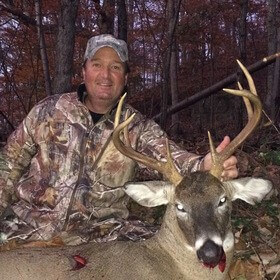
New hunters have been on the decline for a number of years, so I am thrilled to be able to share some best hunting tips for beginners and hopefully keep new and young hunters engaged in the sport.
Best Hunting Tips for a Beginner
Find a Mentor - The best way to learn the skills and methods necessary to become a successful hunter is to seek out the guidance and knowledge of a mentor.
Throughout history the best mentors were family members, but as fewer and fewer people hunt, you may find yourself without a family member to turn to.
In this case, you should contact local fish and game clubs in your area. They will be more than willing to help you find someone that can help show you the ropes.
Safety is Your First Priority - whether you are a beginner or you have been hunting for years, your number one priority has to be safety. Learn to be safe and proficient with whichever weapon you choose.
Don't Measure Your Success by the Harvest - This is a very important principle that I try to pass on to all new hunters. Hunting is so much more than harvesting an animal. Hunting is more about the whole experience of spending time outdoors.
These are some of the best hunting tips for beginners that I can share. Remember to enjoy your time outdoors and as you become more experienced, please take the time to introduce others to hunting.
Kevin Paulson - Hunting Life
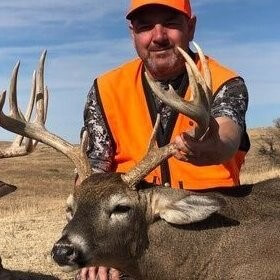
1. Seek out and find a mentor to help you. First and foremost you are going to meet someone who will be willing to help you learn and most likely that person will become a lifelong friend.
I have had the opportunity to hunt with a wide variety of individuals from all walks of life both in the role of mentor and I have had folks mentor me especially when I do not know a specific species or area.
If you are always willing to learn from others you can shorten your learning curve dramatically.
2. Protect yourself in the woods with the proper amount of bug repellent. Lyme Disease is on the rise as well as West Nile Virus and ticks, chiggers and mosquitos are no joke. Hunters are happy with the Scent Zero protection as it cannot be picked up by game species because it has zero scent.
3. Be patient. Learning how to hunt a species or an area takes time to figure it all out and hunting is full of opportunities to learn patience.
Brady Kirkpatrick - Gun Made
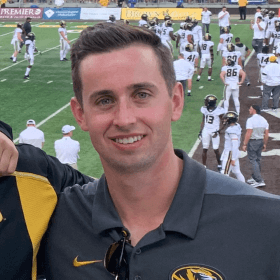
These are one of the most important hunting tips for starters.
Stealth and Silence
Always be as quiet as you possibly can. Even the faintest twig, branch, clothing and equipment rattling will alert the animals. Dress appropriately, gear up lightly, and don't use velcro clothing or anything that would make a lot of noise.
Navigating Your Surroundings
Become acquainted and scout out the hunting area. Depending on which game animals you hunt, it's always a good idea to familiarize yourself with the perimeter, and use landmarks so you won't get lost.
Patience Goes a Long Way
Many hunters don't have the patience to acquire a clean shot. There's a lot of waiting, but it pays off in the end when a deer appears on your scope. Persistence is key.
Mind Your Scent
Animals have heightened senses, and it's a good idea to become as odorless as possible. There are many chemicals and cosmetic products that mask your scents. That means no smoking, no alcohol, and no smelly food.
The wind factor is also crucial because if the wind direction is at your back, there's a bigger chance that the game might catch your scent and run away.
Move As Little as Possible
It sounds impossible, but it's very important. After scouting the area, you need to time and plan your movement if you want to get a good shot at your target. Move as slow and as little as you possibly can.
Insect Repellent Is Important
This is a very overlooked tip. Mosquitoes, wasps, and other insects can be very annoying and will surely break your concentration and focus.
There's a little something called ‘odorless insect repellent for hunting', and does wonders for situations like this.
Pete Muller - National Wild Turkey Federation
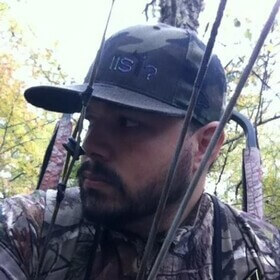
The difference in a beginning hunter becoming a life-long hunter hinges on the hunts being a good experience.
So, my first recommendation is to find someone to be a mentor. This person doesn't have to be the most accomplished hunter you know, but find someone you can trust who can help show you the ropes.
They can help you learn about local game opportunities or understand hunting, which can be a daunting task in itself. As for gear, do your research to find what works best for you, and borrow items if you can until you find what you like.
Once in the woods, now taking an animal is a personal decision that only you need to be happy with (outside of game laws of course). Therefore, set realistic goals for what you are okay with harvesting and stick to those goals.
The final tip would be to remember that you are hunting, and nothing is guaranteed. So, enjoy the outdoors, the overall experience and know the more you get outside the more likely you'll find success with a punched tag as well.
Jeremy Nesbitt - Nexgen Outfitters
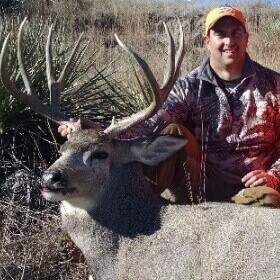
Whether you have chosen to pursue hunting to put food on the table, spend more time with friends and family, or simply conquer the challenge of adapting to mother nature's elements while outsmarting the instincts of a wild animal...CONGRATULATIONS, and welcome into the circle!
Those of us already "hooked" understand there is only one way to participate. Learning to be safe, humane, respectful, and responsible stewards of our outdoor resources should be the primary focus of any pursuit.
A little education goes a long way and at Nexgen Outfitters we encourage newcomers to work through three big aspects.
1. Research your state's regulations. Almost every state now has wonderful online resources to help guide you. Among other things, find out when your season opens, what licensing requirements exist, and the legal weapons for your chosen game, season, and area.
2. Get the right equipment for your chosen pursuit. Sure we are a retailer, but there is also absolutely nothing wrong with hand-me-downs or garage sale gear. Just please have an expert inspect especially used firearms or archery equipment before you use it. Finally, ensure you have been educated on all the safety guidelines of your weapon, with plenty of time to practice before putting a game animal in your sights.
3. The last and longest process is to find someone experienced to help set you up for success, and BE PATIENT. Seasoned hunters know a big part of our responsibility is to foster the conservation of the land and wildlife we all love, so just ask.
We'll see you out there!
Jeremiah Colt - USA Safe And Vault

When considering the best hunting tips, beginners are well-advised in my opinion to focus on the timeless tips.
Hunting has been around since the days of cavemen (and cave-women, if that's a term!) so there is no sense in re-inventing the wheel.
Here are my favorites top 5 tips that I keep in mind when hunting, and also what I share with someone new to hunting--even if they don't come from a family background of hunting:
Know what you are getting into.
Too many beginners don't realize that hunting takes a big-time commitment and you will be deprioritizing time with family, friends, and other activities. Make sure you are prepared, going in.
Choose your weapon.
Like most things, to get good at anything, you need focus (another good hunting term!). Stop jumping around the big three categories: rifle, muzzle-loader, and hand-held bow. Pick one and get good at it. Your wallet will thank you, too.
Be prepared to learn and get a buddy who is experienced.
There are tons of resources today including Facebook groups, YouTube videos, blogs, and books. Search them out and learn from first-hand experiences. You don't want to be assessing what you know in the heat of moment when you have the buck of your dreams in your sights. My preference is YouTube videos and blogs.
Pick your target animal.
Again, like your choice of weapon, the animal you pick will determine the environmental conditions you will need to embrace in those joyous hours. If you hate wet conditions, do you really want to be duck hunting?
Be safe.
Nothing is worth losing a life or limb over. Make sure you understand the rules and etiquette when you are out hunting. And don't forget good safety equipment - like a good gun safe - when you store your weapons at home and away from your curious loved ones. Most of all enjoy yourself and join the millions of others who are like-minded.
Carrie Zylka - Hunt Fish Travel

My first hunting tip for a beginner is to just get out there and do it. And don't be afraid to do it solo. Sometimes you build more confidence figuring it out and handling frustrations on your own rather than someone doing it for you.
But my biggest tip is to start with turkey hunting. Deer hunting or Elk hunting can be frustrating and occasionally boring.
Spring turkey hunting is exciting, birds are interactive, you don't have to worry about scent prevention, and it is less expensive if you are trying for an out of state bird.
When I take someone hunting for the first time, I always take them turkey hunting. Once they hear that first gobble they are hooked!
Get out there and hunt!
Randy Picou - Concealed Coalition

Many times hunting involves climbing into an elevated stand. You should never load your rifle until you are safely in the stand.
Whether you carry your rifle while climbing, or use a rope to pull it up after your climb, an accidental discharge could be deadly.
Another discipline the hunter must master is to always positively identify your target. Many hunters have been killed or wounded by another hunter who shot into a moving brush or at a moving object.
This happens usually at dusk or dawn when a hunter can hear movement but his eyesight is limited.
Another often overlooked discipline is to remember to immediately engage your rifle's safety after you have made your shot.
Many times the excitement of successfully taking your animal will override clear thinking. Leaving your rifle ready to fire can sometimes be fatal.
Jamie Burns - BulkMunitions

When you're starting out hunting, don't be afraid to ask for help! While hunting is typically depicted as a solitary hobby, it can actually be a great social activity.
Especially when you're starting out, teaming up with a more experienced hunter can make for a much better experience for you (think of them as a mentor).
Having a hunting guru really helps de-stress your first few times in the field.
Most hunters love sharing their hard-earned knowledge; they'll know where the best places are to hunt (and the rules/regulations around those places and times), the right gear you'll need (or don't need!), and the right hunting tactics to use to be successful.
Plus, it's safer to hunt with another person as well (think buddy system). Someone will know where you should be and will be available to quickly help if a situation arises.
Plus, many hands make light work when you're dragging your harvest back to camp!
Jacob Rieper - Gun Politics Ny
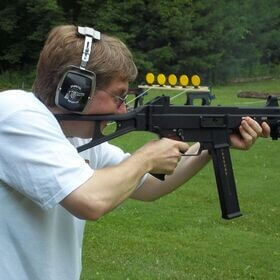
The most important thing I can tell first time hunters is to remember the four rules of firearms safety:
- Treat all guns as if they are loaded.
- Keep the muzzle pointed in a safe direction.
- Keep your finger off the trigger until ready to shoot.
- Know your target and what is beyond it.
I strongly suggest hunters get more practice shooting in with their hunting guns than just firing a few rounds to sight in the scope or pattern the shotgun.
For rifles, spend some time shooting from different positions at targets at different ranges out to the maximum distance you expect to hunt game for.
For shotguns, trap shooting is a good way to practice against a moving target. While sporting clays is more realistic in so far as the targets can come from any direction, traps are less expensive and many clubs which offer them are open to the general public.
While the club may not allow the use of heavier hunting shells for traps the main thing is to learn how to shoulder and swing the gun.
Jacki Billings - Pew Pew Tactical

Most newcomers feel a little scared and intimidated to head out alone.
So, when it comes to hunting for the first time, my very best piece of advice is to find a pal. By that, I mean, find someone local to you who is already a hunter. Then ask if you can tag along on their next hunt. This could be a family member or friend with hunting experience.
You'll get a crash course and learn in-the-field tips and tricks that you miss out on if you go it alone. Plus, it cuts down on the intimidation factor if you have someone with you.
What if none of your friends or family hunts? Head to the local gun range and ask around. You will definitely find a hunter lurking about there. The staff can help point you in the right direction of someone willing to share the love of hunting with you.
And, bonus, gun shops can also help steer you in terms of guns and gear if you need those items as well.
Ultimately, don't be afraid to take the plunge, find a buddy, and enjoy the great outdoors!
Michaela Fialová - Michaelka's Hunting
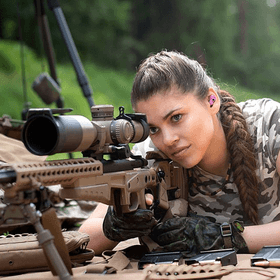
My best tip is to trust other more experienced hunters.They can give you all the knowledge you will need to start.
All across the globe people hunt in a different way. For us in the Czech republic it means a year of study so it gives us enough knowledge to start, but I know some other countries just give you a license after a couple of hours and you can be pretty confused.
So look for some more experienced buddies or family members and ask them for help. Hunting is a social activity and you will find lots of new outdoors friends and that's what I see as the biggest benefit of hunting.
Not just being outdoors and getting fresh venison...but finding and building very strong friendships is part of hunting and especially in its beginning.
In general I would not rush with equipment shopping. Don't spend thousands of dollars straight away. Hunt for a while with cheap clothes and equipment and spend more money when you know what you need to buy and what you really use.
If you're a beginner I wish you best of luck and have a beautiful journey in this outdoor activity. May hunting gods always stay with you.
Roy Chesson - Gun University

There's no such thing as bad weather - only bad clothing.
Before you set up to hunt, make sure you understand not only the climate in the area you will be hunting, but also the shift in temperature.
Perhaps when you first go out there early in the morning it will be 20 degrees, but by the time the sun rises, it could heat up to 50 degrees.
You therefore need to prepare for this and have layers that will allow you to be warm enough to sit still in 20 degrees, and then shed off layers to be comfortable in 50.
If you don't do this, your hunting trip will be miserable and you won't be able to enjoy the experience.
So, dress for the shift in weather.
Fletcher Findley - Findley & Rogers

When you're preparing to hunt for the first time, there are a lot of different things to do!
One aspect of preparation you can't afford to forget is reviewing the hunting laws in your state and county. You need to understand and observe all applicable laws, especially getting the appropriate license(s).
To hunt legally in the United States, you need to have a hunting license in the state where you are hunting (an especially important point to note if you plan to travel to a different state to hunt). You must also observe the relevant state fish and game department requirements. Licenses can be purchased at most retailers that sell hunting and fishing equipment.
Depending on the specific type of game you're planning on hunting, there may be additional regulations.
For instance, most states require you to purchase a tag for each big game animal harvested. U.S. federal law also limits the hunting of endangered species.
Wherever you plan to hunt, make sure you carefully review all regulations to ensure you comply fully and obtain all necessary licenses. Legal preparation is crucial for an enjoyable hunting trip!
Brad Evans - Coyote Hunting

Hunting can be a fun activity to enjoy individually and also with friends and family. Here's how to go about its as a beginner
Decide on the kind of hunting you want to engage in. Among the top options you have are big game, small game, or bird hunting. Pick whether you will go for rifle hunting or crossbow hunting.
Obtain your hunting certification, license, and safety card.
Familiarize with the local hunting laws and regulations. Identify a hunting spot and talk to the people around. You don't want the locals being wary of a stranger carrying a gun in the forest.
Take time to practice your weapon. You can get some training from a local hunting group. * Get your hunting gear right; this includes camouflage dressing.
Bring along an experienced hunter on a couple of your first hunting trips. You will learn a few pro-hunting skills to improve your success.
Eliminate your body odor with odor eliminator sprays before you begin hunting. Some games like deer have a near-perfect sense of smell.
Practice patience as you hunt. Don't move around too quickly when you fail to spot an animal after a few minutes of waiting. Don't shoot at it as soon as you see it.
Master how to take advantage of the wind and compensate for its effects while hunting.
Stay alert for signs of the presence of animals. Check for hoof marks, dropping, tracks, and rubbings on trees.
Brandon Buckelew - Hunt For Conservation

1. Make sure to aim your rifle at the beginning of every season.
This is an important step for any ethical hunter. The distance to sight the rifle will differ with the type of game being pursued, but 100 yards is common. Doing this at the beginning of every season ensures that you are able to place shots where you are trying to for a quick kill.
2. Be sure to learn about the game you are chasing.
Understanding an animals habits and behaviors is an important piece of successful hunting. Knowing when the animal is most likely to move and where to look allows you to maximize your chances of success.
3. Learn to scout effectively.
Scouting differs depending on the game you are chasing, but looking for signs and setting out trail cameras are common for a variety of animals. Signs of an animal using an area, such as rooting in wild hogs, is a good first step. Wild hogs root when they are feeding.
Using trail cameras is important when monitoring an artificial feeding station or to pattern movements of game animals. This is one of the easiest and least time consuming scouting methods out there.
4. Find some people to hunt with.
Some people prefer to hunt alone, but I've always found it more enjoyable to go with others. It is a great way to meet people with common interests and gives you someone to swap stories with.
Online communities and Facebook groups are also good places to post pictures and discuss your hunting topics and stories. Speaking to others often results in everyone learning something.
5. Be safe
No hunt is worth losing your life. Be sure to take precautions when hunting, especially if you are alone. If you are hunting from a tree stand, wear a safety harness.
If you are stalk hunting western game, make sure you have some way to communicate with someone when you leave and return to your vehicle. Taking these simple steps will have little impact on your hunt but could save your life.
Oliver - Sniper Country

Getting into this marvellous sport is daunting. I remember my first hunt and it certainly feels like a steep learning curve.
However, it does not have to be, and these tips will stand you in good stead. If you follow these, you will develop into an excellent hunter.
1) Understand your prey.
I cannot stress this enough - observe and begin to understand the behaviour of your prey. You will begin to recognize patterns and learn to predict your target. Go out into the outdoors, take binoculars or a scope and observe. There's also plenty of material online you can take advantage of.
2) Strive for accuracy.
By this I mean, practice shooting accuracy beforehand and learn your tools. Learn how to zero your scope and, if a long range hunter, invest in a good scope; a bad scope will do you no favors. You need accuracy not only to hit your target but also to kill humanely.
3) Patience.
I understand, the adrenaline when a target enters your sights can be overpowering but you must learn to be patient. In this sport, the most patient hunter always comes top.
4) Always hunt against the wind.
A rookie error is to forget that the wind will carry your scent and your prey will scatter, and fast. Hunting against the wind solves this.
5) Don't be afraid to ask questions.
Too many mistakes are made by beginners making assumptions or being too afraid to ask. The hunting community is a supportive one and eager to help. Reach out to a friend, a club or many of the communities online. They'll be delighted to help.
Saunders Clark - Coyote Hunting 101
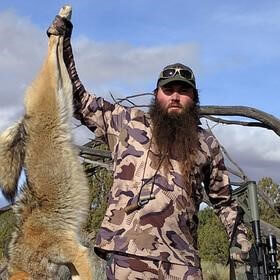
Perhaps the best thing you can do is find a mentor who can help you flatten the learning curve. A good mentor is worth ten years of trial and error.
The next thing for a beginner is to become familiar with their prey. Study their behavior and habits and spend time in the field looking for signs, food sources, and water.
Too many beginners waste time hunting areas that have limited prey due to poor habitat.
After you find signs and activity it's important to understand the strengths and weaknesses of your prey.
Do they have superior eyesight? Do they use their nose and easily catch the scent of an approaching predator?
Once you understand their strengths and weaknesses, you need to practice good habits in the field.
Spend time scouting and use this time to play the wind, move discreetly through timber or brush, use a low voice and watch your step.
You've got to learn to see your prey as they usually blend into their environment.
Once you begin to have interactions with wildlife out in the field, then you should start thinking about the gear needed to be successful.
Generally you'll need a lot less than you think. Practice shooting with your equipment, develop good habits and be exact.
John Murphy - Elevate Your Hunt

Here are my tips for beginner hunters.
1. Go with an experienced hunter the first few times.
2. Scout the land prior to hunting season and get familiar with the surroundings and terrain.
3. Get a satellite phone, you may not need to call for help but better safe than sorry.
Brian Smith - Outside How

Be Prepared
A successful hunt begins with planning and preparation. Preparation for hunting can be bucketed into three different categories: mental, physical, and gear.
Discard expectations of comfort. If you put yourself in the mental state of being ready to face the worst, you will tame the reality of discomfort.
Hunting a variety of animals means you will want to incorporate a variety of workouts. High-intensity interval training will closely mimic what you will find in the wilderness: fast, steep climbs.
One of the most important hunting tips for beginners is to focus on what you need and balance it with what you don't need. You may need to prepare a hunting license, weapon, scope, knife, hunting Clothing, scent killer, first aid kit, etc.
It is also important to learn how to use your hunting gear. You need to know how to use your weapon and scope. Practice getting comfortable with all shooting positions while achieving a good sight picture.
Every state has a hunters' ed program that's usually legally required before hunting. In addition, you can also take some online hunting courses.
Fred Hoffman - IBC7 Outdoors

If you are confused about the beginning of your journey as a hunter, here are a few things that will help you stay afloat.
1. Go real slow
If you are new to hunting, you might need to practice how to walk really slow and stay put so that you don't scare your prey off. Walking while hunting is totally different from your daily routine.
What you can do is, keep a watch with you and set a time of say 5 to 7 minutes during which you need to stand still and quiet. That way you'll learn how to stay put when needed during your hunting experience.
2. Always stop at the noise
Animals have tremendous senses and those noises which you tend to ignore can keep them at a lookout for a very long time.
The key here is to always stop even when there is not a very loud noise, for example if you stepped on a twig, you ought to stop.
Chances are that there are deers nearby and they keep on looking at the direction from where the noise came.
So, if you stay put, without making any noise then after some time the deer will turn back to doing whatever it was doing before instead of running away.
Paul Johnson - North Outdoors

Whenever I talk to someone who is just getting into hunting, I always encourage them to start small and not put pressure on themselves to do the "big" hunt right away.
If you are just getting started, take a couple of hours one afternoon to go and walk for pheasants or doves, whatever might be in your region.
There is plenty of public land in most states, and almost everyone has some public hunting land available within an hour or two.
Your first few hunts do not need to be an Elk excursion to Canada or a dove hunting trip to South American.
Additionally, find an experienced hunter to go along with. Most hunters love introducing someone to the lifestyle, assuming you are safe and responsible with your firearm or bow.
Learn a few of the best practices from them, and then start venturing off on your own. In general, just start small and grow gradually.
Robert Gate - Archery Topic
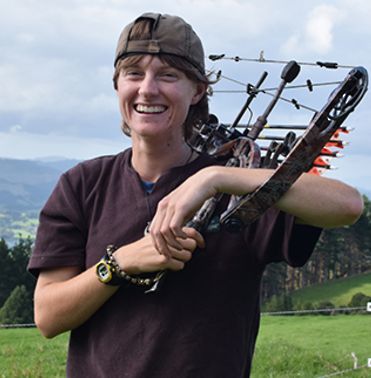
1. Get into the outdoors
One of the biggest barriers to hunting is allowing ourselves to get overwhelmed in the details, remaining at home thinking that it is all too complicated.
If you aren't already versed in the outdoors, put on a day pack and go hiking around. Get comfortable venturing around the woods.
2. Start with small game, or a friend
If you have the opportunity to go out with a friend, family member or mentor, then that is a great entry point to the life of hunting. Having experience around you makes all the steps much easier.
That said, not all of us have a fellow hunter in our lives.
For the independent newbie, starting with small game such as squirrels and rabbits with a .22LR or small-bore shotgun is a low stress entry point. This gives you a first taste of hiking with purpose, looking for animals and improving your field shooting skills.
3. Ask for advice and share your experiences
As you go through your journey, questions will arise and challenges faced. Even if you do not have a real-life mentor, there are still supportive online hunting communities you can turn to for support along the way, such as the New to Hunting Facebook group.
In the end, it is all a journey, so enjoy the experience for everything that it offers: the good, the bad, the frustrations and the joys.
Thank you so much to all the experts that have contributed to this expert roundup! If you enjoyed reading this post, then please share it with your friends and family on social media.


